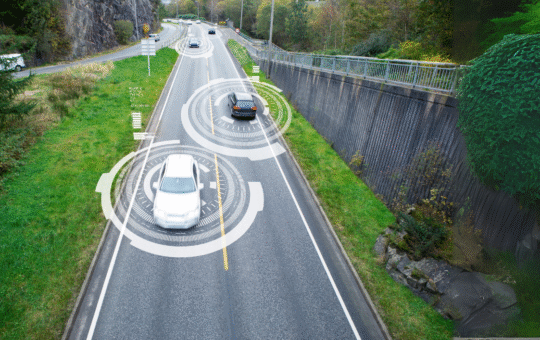
Level 2 Award in Vehicle Dynamics and Performance Analysis
- Gain a deeper understanding of the principles that govern vehicle performance and dynamics.
- Learn how to analyze and optimize vehicle handling and stability.
- Build essential skills for careers in automotive engineering, testing, and performance analysis.
- Explore the connection between vehicle dynamics and safety features.
- Understand the key principles of vehicle dynamics, including handling, braking, and suspension systems.
- Learn how to analyze and interpret performance data.
- Develop an understanding of tire-road interaction and its effect on vehicle stability.
- Identify key factors influencing vehicle design to optimize performance and safety.
- Introduction to Vehicle Dynamics
- Basic principles of forces and motion in vehicle dynamics.
- Key concepts in acceleration, braking, and steering.
- Suspension and Handling Systems
- Overview of suspension types and their impact on vehicle performance.
- Understanding handling characteristics and chassis setup.
- Tire and Road Interaction
- Role of tires in vehicle dynamics and traction.
- How road surface and tire characteristics affect vehicle behavior.
- Performance Analysis Techniques
- Introduction to testing methods for analyzing vehicle performance.
- Use of data acquisition tools to measure handling, stability, and safety.
- Pursue advanced studies in vehicle dynamics, such as Level 3 or Level 4 courses.
- Take on roles in automotive testing, performance analysis, or vehicle development.
- Work in automotive research and development, focusing on vehicle optimization and safety.
- Hands-On Learning: Practical, real-world insights into vehicle performance.
- Industry-Relevant Skills: Build foundational knowledge for careers in automotive engineering.
- Expert Instruction: Learn from experienced professionals in vehicle dynamics and performance analysis.
- Globally Recognized Certification: Enhance your qualifications in the competitive automotive industry.
Study Units
- Introduction to Vehicle Dynamics
- Basic principles of forces and motion in vehicle dynamics.
- Key concepts in acceleration, braking, and steering.
- Suspension and Handling Systems
- Overview of suspension types and their impact on vehicle performance.
- Understanding handling characteristics and chassis setup.
- Tire and Road Interaction
- Role of tires in vehicle dynamics and traction.
- How road surface and tire characteristics affect vehicle behavior.
- Performance Analysis Techniques
- Introduction to testing methods for analyzing vehicle performance.
- Use of data acquisition tools to measure handling, stability, and safety.
Upon completing this award, learners will:
- Understand the key principles of vehicle dynamics, including handling, braking, and suspension systems.
- Learn how to analyze and interpret performance data.
- Develop an understanding of tire-road interaction and its effect on vehicle stability.
- Identify key factors influencing vehicle design to optimize performance and safety.
This award is designed for individuals eager to understand the complexities of vehicle performance and dynamics. It is ideal for:
Automotive Engineers and Technicians
Professionals who want to deepen their understanding of vehicle dynamics, handling, and performance optimization.
Vehicle Performance Enthusiasts
Individuals passionate about cars, motorsports, or vehicle engineering, looking to enhance their knowledge of how vehicles respond to different forces.
Automotive Testing and Development Professionals
People in roles related to vehicle testing, performance analysis, or R&D in the automotive industry, wishing to expand their expertise in vehicle behavior.
Students in Automotive Engineering
Students seeking foundational knowledge to pursue careers in automotive engineering, performance analysis, or vehicle development.
Motorsport Professionals
Those working in the motorsport industry or pursuing a career in performance vehicle tuning, who need to understand the physics and dynamics of vehicles.
Our assessment process is designed to ensure every learner achieves the required level of knowledge, skills, and understanding outlined in each course unit.
Purpose of Assessment
Assessment helps measure how well a learner has met the learning outcomes. It ensures consistency, quality, and fairness across all learners.
What Learners Need to Do
Learners must provide clear evidence that shows they have met all the learning outcomes and assessment criteria for each unit. This evidence can take different forms depending on the course and type of learning.
Types of Acceptable Evidence
Assignments, reports, or projects
Worksheets or written tasks
Portfolios of practical work
Answers to oral or written questions
Test or exam papers
Understanding the Structure
Learning outcomes explain what learners should know, understand, or be able to do.
Assessment criteria set the standard learners must meet to achieve each learning outcome.
Assessment Guidelines
All assessment must be authentic, current, and relevant to the unit.
Evidence must match each assessment criterion clearly.
Plagiarism or copied work is not accepted.
All learners must complete assessments within the given timelines.
Where applicable, assessments may be reviewed or verified by internal or external quality assurers.
Full learning outcomes and assessment criteria for each qualification are available from page 8 of the course handbook.
Top Courses
No results found.
Related Courses
Let's Get in touch
Deleting Course Review
Course Access
This course is password protected. To access it please enter your password below:



